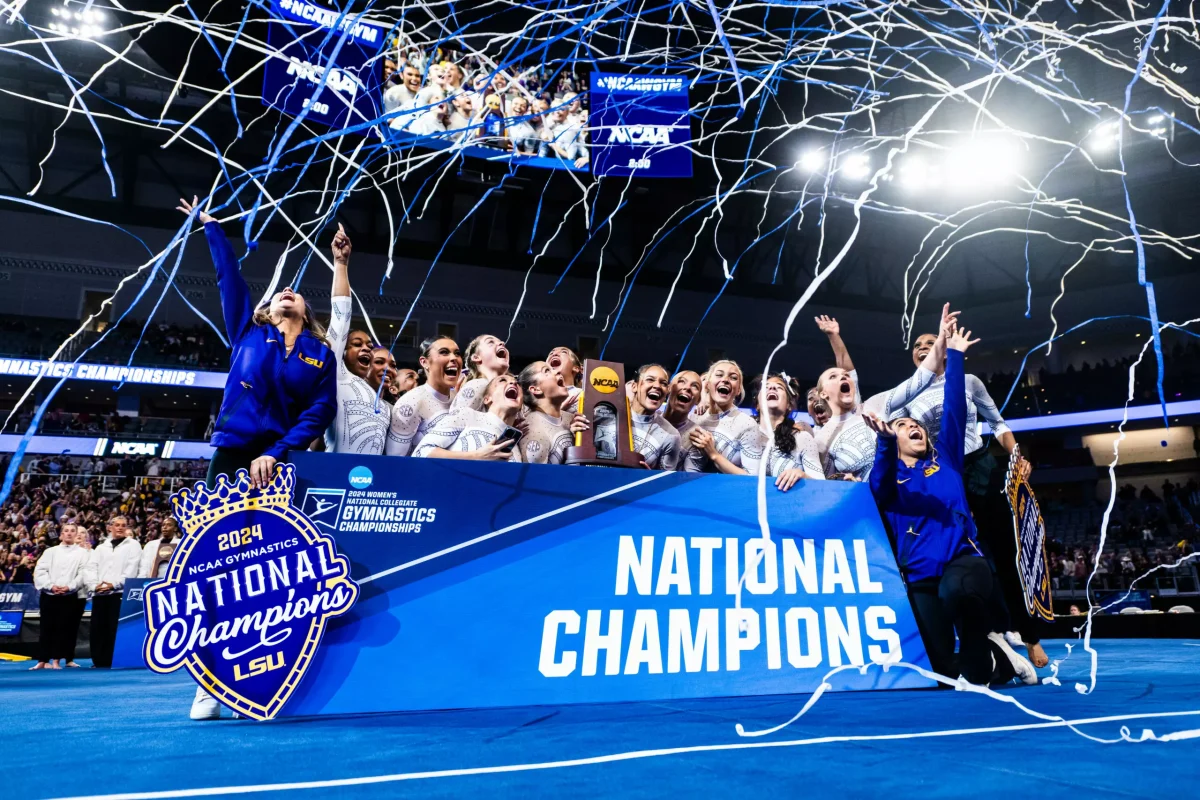Carlos Silvestre uses his trip to the Dominican Republic to show students why Spanish is so special
Every hour in the classroom, you can see Spanish teacher Carlos Silvestre’s evident raw passion seep into his lessons through his accented words.
This true passion comes from his origin: the Dominican Republic.
For the second time, Silvestre is offering a trip to the Dominican Republic to learn about his home country and give a true Spanish-immersion experience with some community service for ten days.
“I set it up as a service-learning experience,” Silvestre said. “So when we go there, we have a project, or several projects, to work on, and just to make somebody’s life better. At the same time, we can learn a lot about the culture, learn about the country, and have some fun.”
This trip didn’t just happen overnight. Silvestre has always had the idea to take a trip to the Dominican Republic.

When visiting the Dominican Republic with his family in 2014, Silvestre heard about a new town called Las Terrenas. His mother told him that his old pastor from his childhood, Jose, had a foundation that had done some work in that area. Jose wasn’t just a pastor to Silvestre when he was young; Jose helped out his mom and him by driving him around from school and home. Silvestre was eager to meet with him again.
After calling the pastor’s son, he was able to meet up with Jose after a long time apart. During their meeting, Silvestre and Jose caught up and Silvestre learned about all the work Jose had done including: building a public library, a school, and other things for children in the community. This was exactly what Silvestre wanted his students to experience when visiting the Dominican Republic.
“That’s when the light went off, and I said, “Oh wow, you are the person that I need to help me set up this trip that I’ve always wanted to do,a��” Silvestre said. “[Jose] said, “Well, let’s work on it and make it happen.a�� I just needed a little blessing from heaven, and it just happened.”
The meeting between Silvestre and his former pastor spurred on the creation of his now biyearly Dominican Republic trip, one he has hoped to create for years. After 2014, Silvestre worked on the logistics of the trip from 2014 to 2015 and launched the first trip in 2016.
Once Silvestre finalized all the details, he hoped students attending the trip would be able to experience and love the unique culture of the Dominican and Spanish language just like him.
When comparing the culture in the U.S., especially in Forest Hills, to the Dominican Republic, there are some major differences. Recognizing these differences can create an eye-opening experience for the students on the trip, which also helps to eliminate the mindset of thinking that they are the only person in the world and that everybody lives the same. In addition, it allows students to see a new side of Silvestre.

“It’s something I wanted to share with my kids,” Silvestre said. “They experience me in the classroom, they know me, they know who I am, they can see my personality; but I wanted them to experience where I come from- why I am who I am.”
The culture in the Dominican Republic is one of a happy nature. Though not many are very wealthy, they are grateful for what they have. No matter what, they look on the bright side.
Being able to interact and live in a new place for ten days will also fully immerse students into a truly Spanish experience. One of Silvestre’s main points of the trip is to make sure the students are in the community and not alienated from what the Dominican Republic is in a resort.
Residing in the community allows for interaction with natives who mainly speak Spanish. Students will then be able to use their Spanish to get around and understand, which may encourage them to use it more.
“We are going to be in the community,” Silvestre said. “We are going to do some outings that are going to expose the kids to natives. They are going to be in contact with people who speak Spanish. Last time we went, kids were amazed at the fact they could actually communicate with somebody who didn’t speak English.”
The full immersion into the community, culture, and language can provide an opportunity like no other. Students are transported to a new place that may open their thinking.
Silvestre realizes that the trip may change how some students view life, but it’s not his main goal. For him, he just wants students to know where he came from and share his passion for Spanish. Changing their worldview is just a beneficial effect of the trip.
“I don’t say that that’s my goal [to change students’ view on life] because really my goal is to have them experience the culture and the country,” Silvestre said. “But, I think that’s a secondary goal. Kids would understand better when they see that people are poor but they’re still very happy. When kids see that not everything in life is what you possess but what you do with what you have.”
For some students, they might experience a great change due to the differences of the people in the Dominican Republic. Junior Maddie Vonk looks forward to experiencing this.
Maddie has always been hoping to study abroad, and this trip will give her a taste for ten days. It will also let her be one with the culture and cultivate her Spanish through the key interactions she will have with the culture.
“I hope that I add to my appreciation for life, people, and differences,” Maddie said. “It’s really cool to meet and see other people living in environments different than your own. You may be different, but you’re both human beings feeling the same things and breathing the same air.”
Since they will be living in the community, students can have full conversations utilizing their Spanish. This gives them an experience that many other high school Spanish students won’t have.
Silvestre is hopeful that having students live in the community will grow their love for the language since they will have to use it to communicate. Additionally, he believes it could destroy any fear that goes along with speaking Spanish for students.
“[The trip is] improving what they already have [and] what they’re learning in school,” Silvestre said. “[It’s is showing them] not to be afraid of using the language and using it more [often].”
Being afraid of using Spanish isn’t the case for Maddie. Being in Spanish 4 gives her a leg up since she already knows much of what the Spanish language entails with technicalities and conjugations. Her love of Spanish also plays a key role in why she has few to no fear about the upcoming trip.
“I’m not worried about the immersion at all,” Maddie said. “I’m so excited to experience another culture, and I love speaking Spanish.”
Las Terrenas isn’t just about culture; in fact, much of the trip is focused on community service.
When planning the trip back in 2014, Silvestre wanted to include doing some service projects through Jose’s foundation. His foundation, FundaciA?n Mahatma Gandhi, has done a lot of work in Las Terrenas since it was founded in 2005, and their first program opened in 2016. Since Silvestre has always loved to give back, the trip to the Dominican Republic would be the perfect time.
Giving back will also further implement the students into the community. The projects include planting mangrove trees, painting houses, and building playgrounds. Not only will students be involved in working on these projects, but the students will also be able to give to people who deserve it.
Senior Destiny Wu, who was only in Spanish 3 at the time, was able to attend this trip during the summer of 2016 and meet the people she was giving back to.

“When we were building a playground in a neighborhood, the people who lived there joined in and helped us,” said Destiny. “It was their neighborhood that was getting a playground, after all. Even the little kids there got in on it, and it was really sweet.”
The immersion and community service gave Destiny a feel of what the Dominican Republic was like. Though she might have only been able to embrace what was on the surface, the trip still altered her outlook on what the world is really like.
“While I can’t say that the trip really changed my life, it definitely changed my perspective on how big, diverse, and interesting the world is,” Destiny said. “After the Dominican trip, I’ve decided that I really want to travel at some point in my life and especially go back to the Dominican Republic someday.”
As students prep for the upcoming trip, Silvestre hopes they will learn a lot, not just about the language, but the culture and community within the Dominican Republic. The difference between the U.S. and the Dominican Republic is a striking contrast that shows the passion behind Silvestre and his teaching.
“I think that the last trip touched so many lives. Not just life down there, but our kids that went,” Silvestre said. “They were moved by the fact that they were helping people who, if you look at them closely, you probably think, “Man, these people don’t need anything, they’re just so happy,a�� but you know, at the same time, they do need stuff. They don’t live a life of needs, they live a life of joy and happiness, and yes, they may struggle with certain things. If you see kids, they may not have a playground to play; but they find a way around it. They create, and they do things because that’s the life they have.”

Lynlee is a senior and is starting her final year in the midst of all this COVID-19 chaos, which is fitting for her strange luck. Room 139—home to The...
























































































